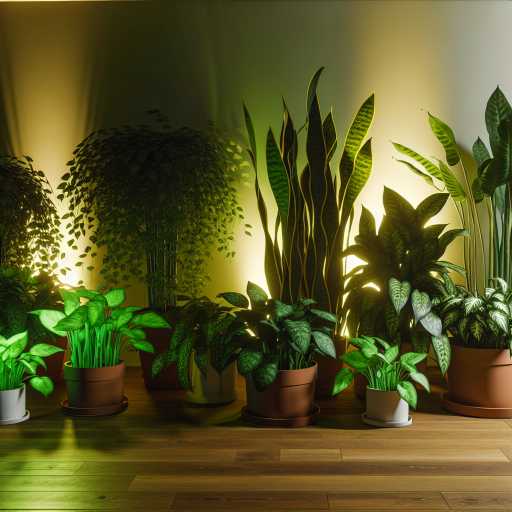The Joy of Plant Parenting: A Beginner's Guide
Explore the delightful world of plant parenting with tips for beginners looking to nurture indoor plants and create a vibrant living space.
Welcome to the World of Plant Parenting!
Have you ever daydreamed about a lush, green home filled with vibrant plants, each telling its own story? If so, you're not alone! Welcome to the exciting realm of plant parenting—a delightful and fulfilling hobby that not only beautifies your space but also brings a breath of fresh air into your life. Perfect for busy professionals, students, and anyone seeking a sprinkle of joy, plant parenting can be a satisfying journey.Why Choose Plant Parenting?
Plant parenting is becoming increasingly popular for a number of reasons. Not only does it elevate your home decor, but it also boosts your mental well-being with numerous studies suggesting that indoor plants can improve mood, reduce stress, and increase productivity. Imagine coming home after a long day and feeling instantly uplifted by your thriving indoor jungle!Your Guide to Getting Started
Starting your journey as a plant parent doesn’t require a green thumb—just a little enthusiasm and the right guidance. Here’s how you can get started:
1. Selecting Easy-to-Care-For Plants
As a beginner, you’ll want to start with plants that are low maintenance. Here are a few recommendations:- Snake Plant: Known for its striking appearance and tolerance to neglect.
- Pothos: A trailing vine that thrives in various lighting conditions.
- Spider Plant: Perfect for air purification and easy propagation.
- Peace Lily: Offers stunning white blooms and can thrive in low light.
2. Understanding Light Conditions
Each plant has unique light requirements. Observe your living space to determine where natural light hits and how often. South-facing windows tend to receive the most light, while north-facing ones provide a good balance. Position your plants accordingly and watch them flourish!
3. Watering Wisely
Overwatering is one of the most common mistakes made by new plant parents. Here’s a simple rule of thumb: ensure the top inch of soil is dry before watering. Each plant has different watering needs, so it’s crucial to develop a routine that suits your plants. Remember, it’s always better to underwater than overwater!
4. Fertilizing for Growth
During the growing season (spring and summer), plants benefit from a good fertilizer to promote growth. A balanced, water-soluble fertilizer diluted to half strength works wonders—just be cautious and avoid over-fertilizing!
5. Create a Plant Care Schedule
Organization is key in the journey of plant parenting. Mark your calendars for watering days, fertilizing schedules, and the occasional leaf wipe-down to keep your plants dust-free and healthy. A simple scheduling app can also help you stay on top of your care routine.
6. Connect with Other Plant Parents
Join a local plant club or online communities dedicated to plant parenting. You’ll find a treasure trove of advice, tips, and even a chance to swap plants with fellow enthusiasts. Sharing your plant journey with others can add even more joy to the experience!
The Benefits of Plant Parenting
The benefits of becoming a plant parent extend far beyond just aesthetic appeal. Here’s what you stand to gain:- Improved Mental Health: Engaging with plants can help alleviate stress and anxiety, promoting mindfulness.
- Enhanced Creativity: With the calming presence of greenery, many find their creative juices flowing more freely.
- Education: Learning about different plant varieties, their needs, and growth patterns can be both educational and rewarding!
A Final Note of Encouragement
As with any new hobby, mistakes are part of the learning process! Don’t be discouraged if a plant doesn’t thrive—the important part is to take notes, learn, and try again. Every plant parent has experienced a worry or two! With the right plants, care tips, and loving attention, you will embark on a satisfying journey toward creating your own sanctuary of green. Happy plant parenting!
Unplug & Play: The Benefits of Digital Detox Retreats
Discover the joy of disconnecting with digital detox retreats, designed for busy professionals seeking relaxation and rejuvenation away from screens.

Discover the Joy of Garden Gnome Rentals: A Whimsical Touch for Any Event
Explore the fun world of garden gnome rentals for parties, events, or decor. Perfect for quirky celebrations or memorable outdoor gatherings.

The Joy of Plant Parenting: A Beginner's Guide
Explore the delightful world of plant parenting with tips for beginners looking to nurture indoor plants and create a vibrant living space.